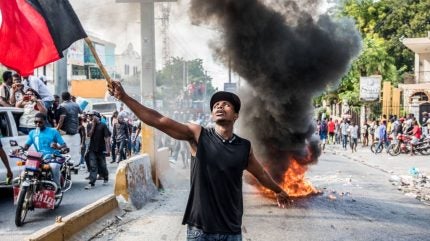

Already one of the poorest countries in the world, Haiti has been undergoing significant political turmoil and civil unrest since March 2019, which has stalled the country’s economy yet further. In addition, Haiti now faces the knock-on economic effects of the Covid-19 crisis.
Of the country’s 11 million citizens, 58.5% were living below the national poverty line in 2010, according to the World Bank, with 24.5% of the population living off less than $1.90 per day. The International Monetary Fund (IMF) projects that Haiti’s real GDP growth will fall by 0.4% in 2020.
Haiti’s economy is also strongly tied to its vulnerability to natural disasters. In October 2016, Hurricane Matthew battered the island costing the economy 32% of its GDP, based on 2015 figures, according to the World Bank. It was the country’s worst disaster since the catastrophic earthquake of 2010, which killed 300,000 people and displaced at least 10% of the population.
FDI into Haiti declines
Much-needed foreign direct investment (FDI) has also declined in Haiti. According to the UN Conference on Trade and Development World Investment Report 2020, FDI inflows to Haiti decreased to $75m in 2019 from $105m in 2018. The US and the EU are Haiti’s main investors, and the country has also partnered with neighbour the Dominican Republic to attract more FDI.
Transparency International ranks Haiti 168th out of 180 countries in its 2019 Corruption Perception Index, and its decreasing inward investment reflects a lack of investor confidence based on an unstable political environment and widespread corruption. In a bid to reverse its FDI fortunes, the government of Haiti has designated tourism, agriculture, construction, energy and manufacturing as key investment sectors, while also signalling that it supports sector-focused investment promotion, higher public spending and the creation of special economic zones.
With an already weakened economy, the Covid-19 crisis is expected to hit Haiti badly as the service sector contracts, supply chains are disrupted and remittances fall as the global economy heads into recession. However, there is some cause for hope. According to the IMF, while Haiti’s real GDP shrunk by 1.2% in 2019, after growing by 1.5% in 2018, a marginal decline of -0.4% is predicted in 2020, followed by 0.9% growth in 2021.



